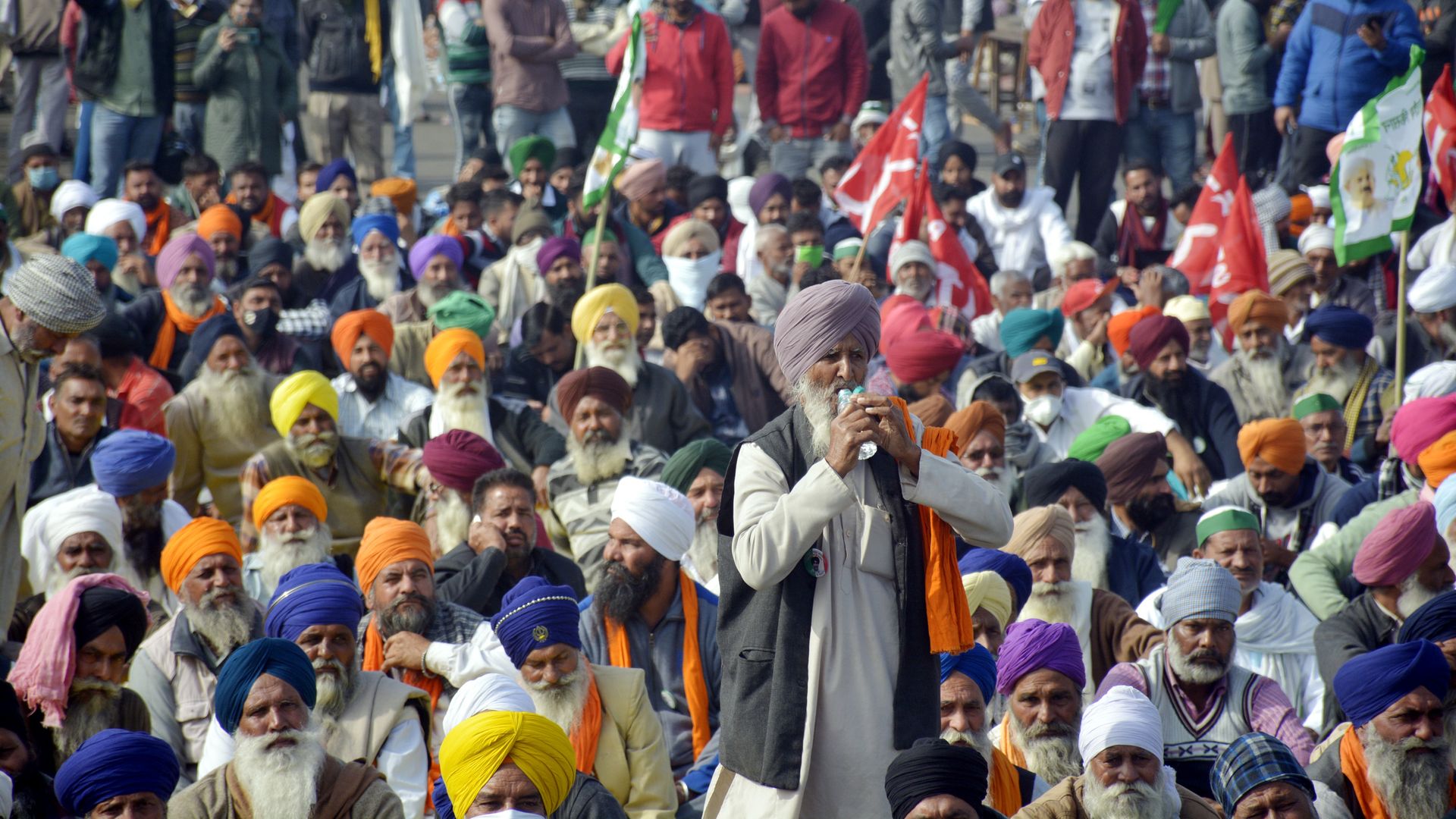Farmers in India escalate protests over deregulation measures
Add Axios as your preferred source to
see more of our stories on Google.

Photo: Sakib Ali/Hindustan Times via Getty
Leaders of a farmers' protest in India held a day-long hunger strike on Monday and reiterated their calls for nationwide protests over new laws to deregulate Indian agriculture, Al Jazeera reports.
Why it matters: Farmers say the laws will drive down crop prices and benefit big corporations. They've taken the government by surprise with large demonstrations in New Delhi, which have now continued for 19 days.
- Farmers are calling on the government to revoke the laws and restore price floors for crops like grain.
- Thousands have camped out on the outskirts of New Delhi and blocked off at least five major highways into the city, per AP.
The big picture: Agriculture contributes 15% of India’s economy and employs nearly 60% of its 1.4 billion people.
- But many Indian farmers are struggling to make a living or escape their debts, particularly during the pandemic downturn. Suicides among farmers have spiked, the NY Times reports.
The three farm laws passed in September were intended to boost the sector and remove the need for middlemen, Prime Minister Narendra Modi has said.
- They allow farmers to sell produce to private buyers, not just government-run markets where they're guaranteed a minimum price.
- But critics say the laws are flawed. “Our agriculture regulation needs change, but the new laws will end up serving corporate interests more than farmers," argued Kaushik Basu, the former World Bank chief economist and a top economic adviser to a previous Indian government.
- Talks between farmers and the government have failed. Farmers' unions soundly rejected an amended government proposal last week.
Where things stand: Farmers have protested for almost two months in Punjab and Haryana states, but things escalated three weeks ago when tens of thousands marched to New Delhi and clashed with police, per AP.
